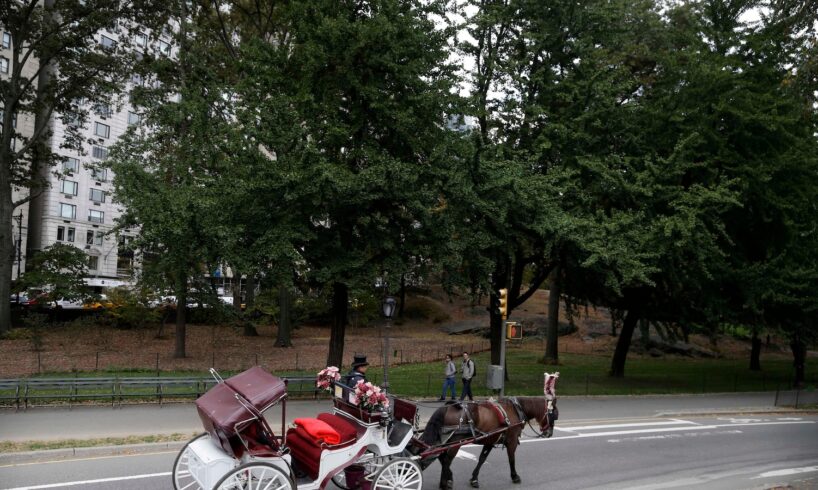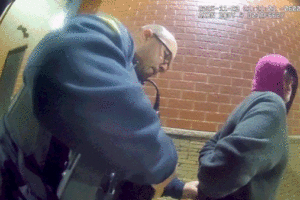
NEW YORK — A carriage driver went on trial Tuesday over a horse’s collapse on a Manhattan street, in a criminal case that encapsulates years of modern-day strife over an old-timey tourist attraction.
Prosecutors say Ian McKeever relentlessly kept driving the horse, Ryder, on an 84-degree (29-degree Celsius) day in August 2022, despite signs that the animal was struggling to pull the carriage before he went down en route back to his barn.
“The defendant chose to press on, business as usual, and overwork Ryder,” prosecutor Taylor Maurer told jurors in her opening statement. The horse survived the fall but was euthanized some months later because of health problems.
McKeever, 56, has pleaded not guilty to a misdemeanor animal cruelty charge. His attorney says the horse was properly cared for, wasn’t overheated, and simply tripped and fell.
“Ryder’s fall is heartbreaking, but the evidence in this case is not going to show that Ryder fell because Ian overdrove him,” the lawyer, Raymond Loving, said in his opening statement.
Horse-drawn carriages have plied Central Park and the city’s streets for over 150 years. Featured in countless movies and TV shows, they’re a quaint attraction for many tourists and a cause célèbre for activists who have long wanted them banned.
Animal advocates say it’s inhumane to have horses navigating Manhattan traffic. Over the years, some horses have gotten startled, run off and collided with cars or other objects. Others besides Ryder have collapsed on the job.
Supporters of horse-drawn carriages see the coaches as a romantic remnant of a bygone New York. They also note that the carriages net tourist dollars and have provided hundreds of jobs to drivers, plus jobs for a glut of farm and racing horses.
“If they did not come to New York City, most of these horses would be dead,” McKeever told The Associated Press in 2014. He said some of his own carriage horses were going to go to slaughterhouses before he bought them.
Perhaps improbably, horse-drawn carriages became a potent political issue about a decade ago, when mayoral candidate Bill de Blasio campaigned on a promise to eradicate them on his first day in office. The Democrat won in 2013 and got pushback from unions, newspaper editorials and other supporters of horse-drawn carriages. After two years, a compromise plan to limit the carriages’ number and range was pulled off the agenda on the eve of a City Council vote.
McKeever has been a carriage horse driver for 30 years. His attorney said Ryder belonged to the defendant’s brother.
The horse was outside for over seven hours on Aug. 10, 2022, mostly in Central Park. An onlooker, Caroline Londahl-Smidt, testified Tuesday that the horse appeared to her to be in “major distress,” walking slowly up a hill, as McKeever shook the reins and seemed to be trying angrily to speed him up.
Later, the horse collapsed near Times Square during the evening rush hour. Bystander video published by the New York Post showed McKeever snapping the reins at him and telling him to get up.
Ryder rolled onto his right side and laid on the pavement for nearly an hour, occasionally trying to rise as police cooled him with water and ice from nearby restaurants, according to testimony and body camera video from Sgt. Vincent Fontana of the police department’s mounted unit. Officers tucked a pillow under the horse’s head to protect his right eye from the pavement.
Ultimately, the horse stood, walked into a trailer and was driven back to his stable.
Fontana said McKeever told him the animal was 13, but prosecutors say he was considerably older.
Through questioning, Loving emphasized that the horse’s temperature was normal and his breathing was not much faster than normal when Fontana took his vital signs. He did so after officers had started hosing down the animal.
McKeever is expected to testify later in the trial. If convicted, he could face up to a year in jail, though the charge also allows for alternatives such as fines or community service.





